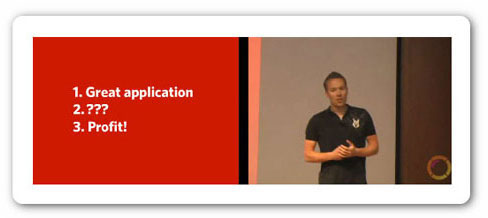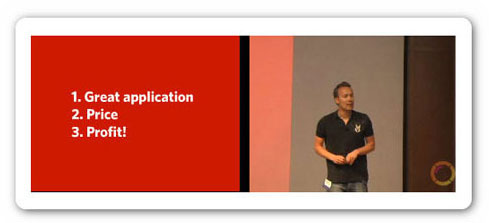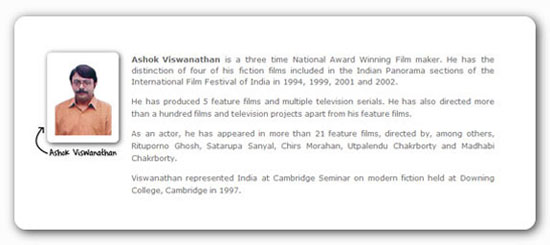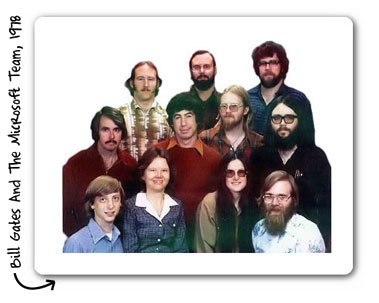We are here for you Twenty-Four-Seven.
Today, lets dive into the depths of time and bring from days that have rolled behind, a classic tale of support done the Indian-way. Before you read any further and start sending me flame mails about the generalization of the word 'Indian' here, trust me, I know exceptions do exist.
I also know that generalizing anything by a country is just about the biggest stereotype of the software development world that you should avoid at all cost, but humor me. I have a point to make and the point is not to ridicule or insult Indians in any way. I happen to be an Indian and I am actually fairly proud to be one. But then, having said that, India as a country and Indians as a group are often totally capable of doing seriously shitty things.
So, as I was saying, lets dive into the depths of time and bring back from the days that have rolled behind, a classic tale of support done the Indian way.
In one of my last work trips somewhere between New York and Chicago, after making us wait inside the plane for about an hour because they lost the stair-case that was supposed to get us down, making me miss my connecting flight and making me quite literally run for the next flight United Airlines manages to put a cherry on the cake of surprises by loosing my luggage.

After a few frustrating experiences with the ground staff who tell me that the bags would show up a day later at my hotel, I decide to make a move, get to the hotel and get on with my life. Three days later, however, I find myself trying to look up my luggage using the baggage tag on the United website which tells me that my luggage cannot be located.
Then, smack out of nowhere, I find myself doing something that I have a love hate relationship with --- I am calling the Support Line. Now, as I already said, I have a love hate relationship with support lines. Love because support lines often tend to be sofa king (to be read really fast, repeatedly) funny that they give me food for thought and posts like this one. Hate because they are so funny, that after a while they stop being funny.
As far as the United support line is concerned this is how it goes. The system routes me through series of automated questions. Then after routing me through a hugely long automated process which also confirms that my luggage 'cannot be located' it lets me talk to a customer care executive. Seven minutes of wait follows after which someone answers the call.
Voice On The Support Line: Good Evening Sir, This is United Airlines. My name is Fred (I could have used the real name, but then Fred sounds so much more fun in this situation), How can I assist you today?
The voice is Indian. Clearly. Plainly. Indian. And the fact that this gentle-man uses an American name to identify himself, tells me exactly what to expect next.
Me: My luggage seems to have gone missing at the O'Hare airport. The ground staff told me that they would ship it to my hotel in about the day and It's been three days since then. I am just calling to find out if you guys know when I would be getting my baggage shipped to my hotel because I am leaving this place and moving on to a new location in the next couple of days.
Fred: I am sorry for the inconvenience sir but we are here to help you Twenty-Four-Seven.
Long silence. Awkward moment.
Me: Do you need my baggage tag number?
Fred: Yes sir. Can you please provide your baggage tag number?
I give out the number. Another long pause follows. After which he tells me that he is going to put me on hold and I sit there listening to music for about three minutes. Then the voice cracks back.
Fred: I am sorry for making you wait Sir. I am also sorry for the inconvenience sir but the system is showing that your luggage cannot be located at this time.
Me: I know that. I saw that on the website and heard that on the automated system and both of them said I should talk to a customer care executive.
Fred: Sure sir. We will have updated information on your baggage soon. I apologize for the inconvenience but we are here to help you twenty-four-seven. You can call us anytime.
Me: How soon would you have updated information on my luggage?
By now I am having a seriously hard time hearing anything other than, Fred is really sorry for the inconvenience caused and that he is here to help me twenty-four-seven. But then, I don't want him to be there twenty-four-seven. All I want is my baggage back. I don't give a rat's ass if they work for three hours a day or twenty four.
We do this insane dance for long time where he assures me that he is really sorry about the inconvenience caused, that he is going to get me a hundred dollar discount on my next flight and that I can call the support center anytime. He then reminds me for, I don't know how many'th time, that they are there twenty-four-by-seven and that I can call them anytime.
Three days later the baggage arrives at my hotel and United conveniently just forgets the promise of the hundred dollar discount on my next flight. I receive no emails, as Fred had promised, no discount coupons. Nothing.
It's like the episode never happened.
We Cannot Help You Unless You Pay More.
Life moves on. I get back to work and this incident of Fred and his Indian support center being online twenty-four-by-seven for me is long forgotten. Till the time I see another example of support done in a slightly different way.
Recently, one of my posts hits the top five post related to programming on Reddit and I get a throng of people visiting this website. The new unique-visitor-count hits almost about fifty-one-users-a-minute, with old users continuing to read and click links on this blog.
This is when the website starts crumbling down under the load of heavy unexpected traffic. After about five hours of non-stop-traffic growing at an uncontrolled rate people start complaining about getting service unavailable errors. I decide to call the support line of my service provider.
Now, before I describe how the call goes, here is a little bit of history of how these guys transformed their support department. These are guys who were once notoriously famous for bad customer support and then one fine day, magic happened. They changed.
They were now, suddenly, providing support that started positively surprising me and the rest of their customers in all the right ways. No-one could really figure out what they had done but something had changed for better.
There were no solid announcements per-say but I suddenly started getting great responses in my support emails and my problems were getting resolved at the blink of an eye. I never had to call them so far, but with this issue it was better to call, than to email and wait for a response.
So, as I was saying, I decide to call up the customer support.
With literally two choices on the automated system, one that asks what I am calling for and other that asks me to press a number to talk to a customer support executive, in less than three minutes I am talking to a real human being, who by the way, helps me locate the customer ID that he needs and then tells me, that I am facing service-unavailable issue on my website, without me having to describe the issue in detail to him.
Then he wants to know if this traffic was expected. He puts me on hold for less than a minute and comes back informing me that even though I am just using one percent of my bandwidth I have crossed my concurrent connection limit and that I would have to pay a little bit more to fix this issue. He then adds confidently that without upgrading the plan there is nothing he can do to fix the issue. Unless I chose to pay more, he cannot help me.
He is direct. Confident. Focused on my problem and is providing me the one single solution he has with a choice: take it or leave it.
I take it.
He initiates the payment right away and the service unavailable issue is sort-of-gone in less than about half hour.
While I should been utterly annoyed with my service provider and the fact that they never documented the number of concurrent connections my site was allowed to have anywhere, I actually end up liking the way the guy at the support handled the situation.
He is not nice to me, he is not sorry for the inconvenience cause, he makes me pay more.
But then, he understands my problem and fixes it while my dear Fred at United, who is there for me twenty-four-by-seven does not get shit done.
And The Point Of This Long Tirade Is...
That support is an art which requires people who know what they are doing. That hiring random Indian students, paying them their pocket money and giving them a bunch of carefully scripted cue-cards or a stupid set of Frequently Asked Questions does not equal good support.
Sometimes, we really do not give a shit if you are there twenty-four-by-seven.
All we give a shit about is our problem and how quickly you can help us fix it.
So the next time you think of publishing your support email, see if you can get the best of your folks in that mailing list and allow them to answer support emails if they want to. The next time you think of building a support department, see to it that you hire the guys who are just as good as your developers or the rest of your organization.
Support is not something you outsource and forget.
Because if you do, people will eventually just stop calling.
And then, they just might move on to companies who understand their problems and do not hire a bunch of random college students to tell you how sorry they are about the inconvenience caused.
Support, is serious business. Give it the time, money and attention it deserves.
I wish you good luck.









Comments are closed.